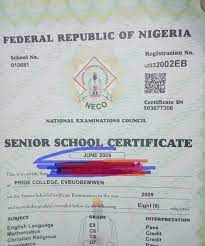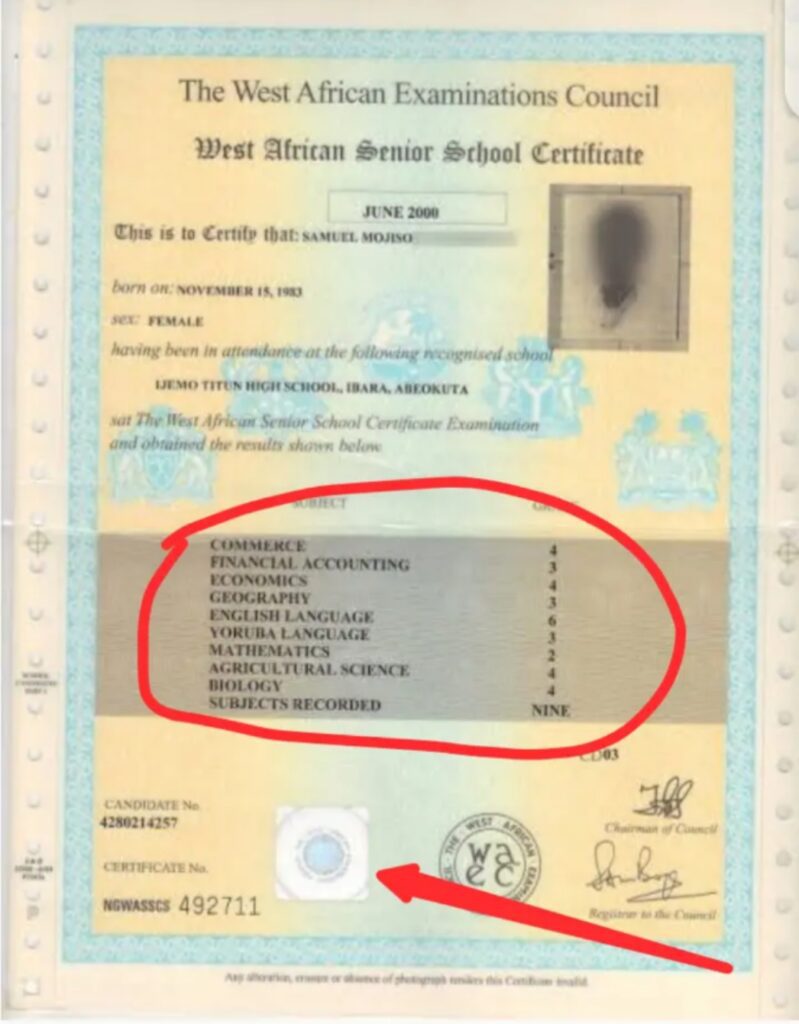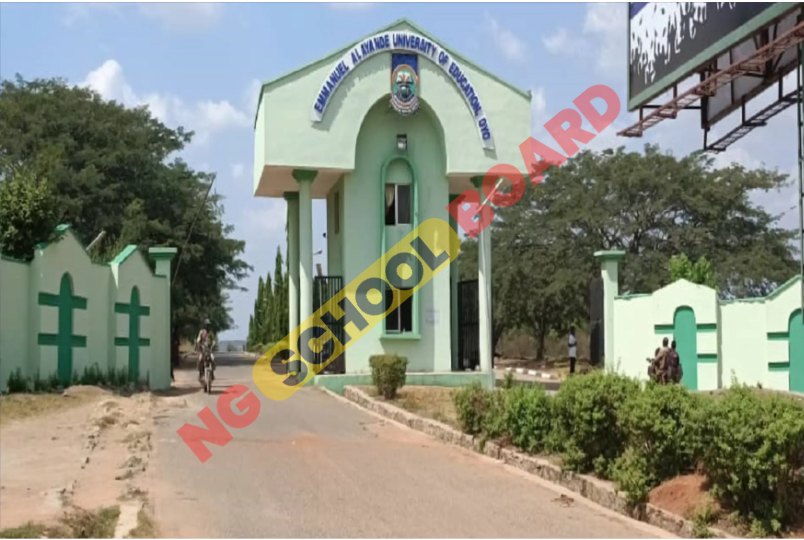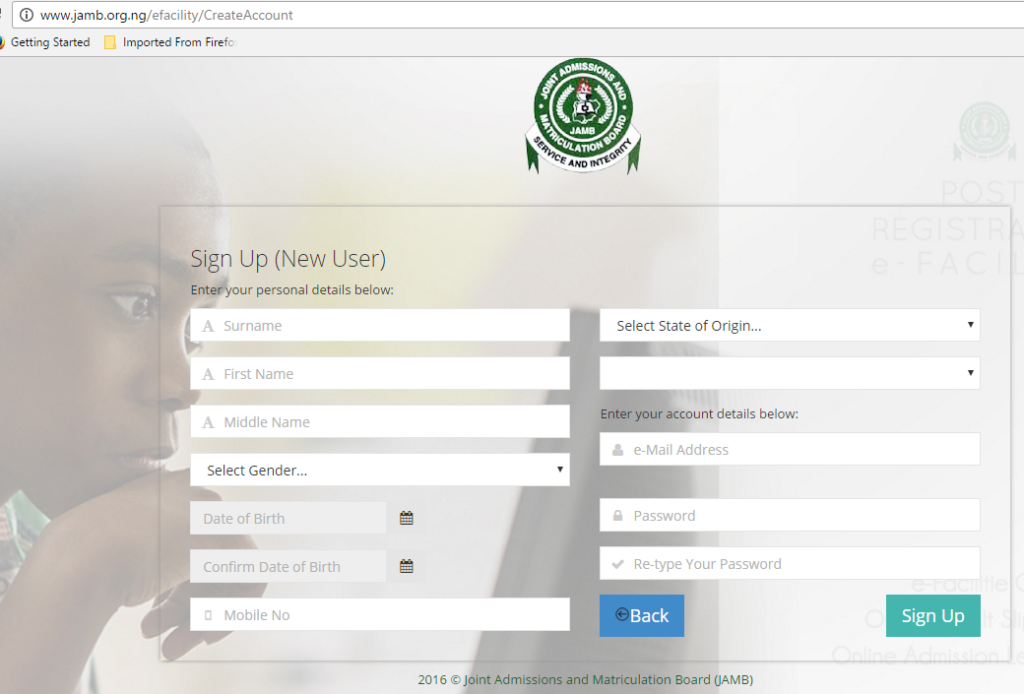Senior Secondary School Certificate is the certificate issued to students who have completed their senior secondary education in Nigeria.
This certificate is the basic requirement for students who want to further their education in any tertiary institution in Nigeria.
In this article, we will discuss how to get Senior Secondary School Certificate in Nigeria.
If you are looking for secondary schools near you where you can obtain a Senior Secondary School Certificate In Nigeria. Ngschoolboard got you covered.

1. Introduction
The Senior Secondary School Certificate is an important educational qualification that is required for further education and employment in Nigeria.
Obtaining this certificate is a crucial step for students who wish to pursue higher education in any tertiary institution in the country.
In Nigeria, there are two main examination bodies that conduct the Senior Secondary School Certificate Examination, namely the West African Examinations Council (WAEC) and the National Examinations Council (NECO).
The examination tests the student’s knowledge and understanding of various subjects, including English language, mathematics, science, social studies, and vocational subjects.
The examination is usually conducted over a period of two to three weeks and consists of both theory and practical exams.
The certificate obtained after passing the examination is recognized both nationally and internationally and is a necessary requirement for many jobs and career paths in Nigeria.
In this article, we will discuss in detail how to obtain the Senior Secondary School Certificate in Nigeria.
We will cover the requirements for sitting for the examination, the duration of senior secondary education, the types of Senior Secondary School Certificate, how to register for the examination, the cost of the examination, the examination process, how to check the result of the examination, and the importance of the certificate.
We will also provide answers to some frequently asked questions about the Senior Secondary School Certificate in Nigeria.
2. Requirements for Senior Secondary School Certificate
To obtain a Senior Secondary in Nigeria, a student must have completed their junior secondary education and passed the Junior Secondary School Examination (JSCE) or an equivalent examination.
The student must also have sat for and passed the Senior Secondary School Certificate Examination (SSCE) conducted by either WAEC or NECO.
Requirements for Senior Secondary School Certificate:
In order to obtain the Senior Secondary School Certificate in Nigeria, there are certain requirements that must be met. These requirements include:
- Completing three years of Senior Secondary School education: In Nigeria, Senior Secondary School education is typically a three-year program. Students are expected to complete this program before they can sit for the Senior Secondary School Certificate examination.
- Registering for the examination: Students who wish to obtain the Senior Secondary School Certificate must register for the examination with either the West African Examinations Council (WAEC) or the National Examinations Council (NECO). The registration process usually involves filling out a form and paying a registration fee.
- Meeting the age requirement: Students must be at least 16 years old in the year they wish to sit for the examination.
- Completing required courses: In order to sit for the examination, students must have completed the required courses for their chosen examination body. The courses usually include English language, mathematics, science, social studies, and vocational subjects.
- Paying examination fees: Students are required to pay examination fees, which vary depending on the examination body and the number of subjects the student is taking.
- Obtaining a school identification number: Students must obtain a school identification number from their school before they can register for the examination.
- Meeting examination guidelines: Students must follow the guidelines set by the examination body in order to ensure a fair and smooth examination process.
By meeting these requirements, students can successfully sit for the Senior Secondary School Certificate examination and obtain the certificate, which can open up a world of opportunities for further education and employment in Nigeria.
3. Duration of Senior Secondary School Certificate
The duration of senior secondary education in Nigeria is three years.
This period is divided into three academic sessions. Each academic session lasts for one year and is made up of two terms.
See JAMB Result Checker with Phone Number
Duration of Senior Secondary School Certificate:
In Nigeria, Senior Secondary School education is typically a three-year program that follows six years of primary and junior secondary education.
The Senior Secondary School program is divided into two parts: Senior Secondary School 1 (SS1), Senior Secondary School 2 (SS2), and Senior Secondary School 3 (SS3).
During the three years of Senior Secondary School education, students take courses in a variety of subjects including English language, mathematics, science, social studies, and vocational subjects.
These courses are designed to prepare students for the Senior Secondary School Certificate examination, which is taken at the end of the program.
The Senior Secondary School program is an important part of the Nigerian education system, as it prepares students for further education and employment opportunities.
The program provides students with the knowledge and skills they need to succeed in their chosen career paths.
It’s worth noting that the duration of the Senior Secondary School program can vary depending on the type of school and the examination body.
Some schools may offer a four-year program, while others may offer a two-year program for students who have completed the Junior Secondary School program in a shorter time frame.
Regardless of the duration of the program, students must meet the requirements outlined by the examination body in order to obtain the Senior Secondary School Certificate, which is a crucial step towards further education and employment in Nigeria.
4. Types of Senior Secondary School Certificates in Nigeria
There are two types of Senior Secondary School Certificates in Nigeria. They are the West African Senior Secondary School Certificate (WASSCE) and the National Senior Secondary Certificate Examination (NSCSE).
The WASSCE is conducted by WAEC, while the NSCSE is conducted by NECO.
There are two main types of Senior Secondary School Certificates in Nigeria: the West African Senior School Certificate Examination (WASSCE) and the National Senior School Certificate Examination (NSSCE).
- West African Senior School Certificate Examination (WASSCE): The WASSCE is a regional examination that is administered by the West African Examinations Council (WAEC). The examination is taken in several West African countries, including Nigeria. The WASSCE is recognized by universities and employers across West Africa and is widely considered to be the gold standard of Senior Secondary School education in the region.
- National Senior School Certificate Examination (NSSCE): The NSSCE is administered by the National Examinations Council (NECO) and is recognized by universities and employers in Nigeria. The examination is similar to the WASSCE in terms of the subjects covered, but it is only recognized within Nigeria.
It’s important for students to choose the type of examination that is best suited to their needs and career goals. Students who plan to attend university outside of Nigeria may want to consider taking the WASSCE, as it is recognized across West Africa.
However, students who plan to remain in Nigeria may find that the NSSCE is more appropriate for their needs.
Regardless of the type of examination chosen, students must meet the requirements outlined by the examination body in order to obtain the Senior Secondary School Certificate, which is an important credential for further education and employment in Nigeria.
5. How to Register for Senior Secondary School Certificate
To register for the Senior Secondary School Certificate Examination, the student must obtain the registration form from either WAEC or NECO.
The student must provide their personal information, including their name, date of birth, and address.
The student must also provide information about their school and the subjects they wish to sit for in the examination.
To register for the Senior Secondary School Certificate examination, students must follow these steps:
- Choose an Examination Body: As mentioned earlier, there are two main examination bodies that administer the Senior Secondary School Certificate examination in Nigeria: the West African Examinations Council (WAEC) and the National Examinations Council (NECO). Students must choose the examination body that is best suited to their needs and career goals.
- Obtain a Registration Form: Students can obtain a registration form from their school or from the examination body. The form must be completed accurately and submitted with the appropriate fees.
- Submit the Form and Fees: Once the registration form is completed, it must be submitted to the school or examination body along with the appropriate fees. The fees vary depending on the examination body and the number of subjects being taken.
- Receive Examination Timetable: Once the registration process is complete, students will receive an examination timetable. The timetable outlines the date and time of each examination.
- Sit for the Examination: On the day of the examination, students must arrive at the examination center early and bring the necessary materials, such as pens, pencils, and calculators. The examination typically lasts for several hours, and students must answer questions in a variety of subjects.
- Receive Results: After the examination, students will receive their results within a few weeks. The results will indicate whether the student has passed or failed the examination.
It’s important for students to follow these steps carefully to ensure that they are registered for the Senior Secondary School Certificate examination and that they are well-prepared for the examination itself.
6. Cost of Senior Secondary School Certificate
The cost of the Senior Secondary School Certificate examination varies depending on the examination body and the number of subjects being taken.
As of 2021, the cost of the West African Senior School Certificate Examination (WASSCE) ranges from ₦13,950 to ₦32,250 depending on the country where the examination is being taken.
The cost of the National Senior School Certificate Examination (NSSCE) is slightly lower and ranges from ₦9,850 to ₦13,500.
In addition to the examination fees, students may also need to pay additional fees for materials, such as textbooks and study guides.
Some schools may also charge additional fees for registration and other administrative costs.
For some students and families, the cost of the Senior Secondary School Certificate examination can be a barrier to obtaining this important credential.
However, there are a variety of scholarships and financial aid programs available to help offset the cost of education.
Students should consult with their school or examination body to learn more about these programs and explore their options for financing their education.
Overall, while the cost of the Senior Secondary School Certificate examination may be significant for some students, it is an important investment in their future education and career opportunities.
7. Examination for Senior Secondary School Certificate
The Senior Secondary School Certificate Examination is usually conducted in May/June or November/December.
The examination is made up of both theory and practical exams. The theory exams are written, while the practical exams are conducted in a laboratory or workshop.
The Senior Secondary School Certificate examination is a comprehensive examination that covers a wide range of subjects.
The examination is typically administered over the course of several days, with each day dedicated to a different subject area. The examination consists of both multiple-choice and essay-style questions.
The subjects covered in the examination vary depending on the examination body and the student’s chosen course of study. However, some common subjects include:
- English Language
- Mathematics
- Science (Physics, Chemistry, and Biology)
- Social Studies (Geography, Economics, Government, and Civic Education)
- Foreign Languages (French, Arabic, and Spanish)
- Arts (Music, Fine Arts, and Literature)
The examination is designed to test the student’s knowledge and understanding of each subject area. Students must demonstrate their ability to analyze and interpret information, apply critical thinking skills, and communicate effectively in writing.
To prepare for the examination, students are encouraged to attend classes and study regularly throughout the school year. Many schools offer study guides and practice tests to help students prepare for the examination.
Additionally, there are many online resources available, including study guides, practice tests, and educational videos, that can help students prepare for the examination.
Overall, the Senior Secondary School Certificate examination is a challenging but important test of a student’s knowledge and skills.
By successfully passing the examination, students can earn a valuable credential that can open doors to higher education and career opportunities.
8. How to Check Senior Secondary School Certificate Result
To check the result of the Senior Secondary School Certificate Examination, the student must obtain a scratch card from either WAEC or NECO.
The student must then visit the official website of the examination body and enter the required information, including their examination number and scratch card pin.
After taking the Senior Secondary School Certificate examination, students can check their results online or through their school.
To check results online, students will need their examination number and the year they took the examination.
The process for checking results varies depending on the examination body.
Here are the steps for checking results for two of the major examination bodies in Nigeria:
- West African Examination Council (WAEC):
- Go to the WAEC result checking portal: www.waecdirect.org
- Enter your examination number and the year you took the examination
- Select the type of examination (e.g., May/June or Nov/Dec)
- Enter the card serial number and pin
- Click on “Submit” and wait for your result to be displayed on the screen
- Print out your result or save it for future reference
- National Examination Council (NECO):
- Go to the NECO result checking portal: www.result.neco.gov.ng
- Select the examination type (e.g., SSCE External or SSCE Internal)
- Select the year you took the examination
- Enter your examination number
- Click on “Check My Result” and wait for your result to be displayed on the screen
- Print out your result or save it for future reference
Students can also check their results through their school by obtaining a statement of result or certificate from their school.
It is important to keep in mind that results are typically released several weeks after the examination, so students should be patient and check regularly for updates.
Overall, checking Senior Secondary School Certificate results is a straightforward process that can be completed online or through the student’s school.
By obtaining their results, students can determine their level of achievement and use this information to plan their future education and career goals.
9. Replacement of Senior Secondary School Certificate
If a student loses their Senior Secondary School Certificate, they can apply for a replacement from either WAEC or NECO.
The student must provide evidence of their identity and pay a fee for the replacement certificate.
In some cases, students may need to replace their Senior Secondary School Certificate due to loss, damage, or theft.
The process for replacement varies depending on the examination body.
Here are the steps for replacing a lost or damaged certificate for two of the major examination bodies in Nigeria:
- West African Examination Council (WAEC):
- Obtain a police report and a sworn affidavit stating that the certificate has been lost or damaged
- Visit the WAEC office closest to you and request a certificate replacement form
- Fill out the form, attach the police report and affidavit, and submit it to the WAEC office
- Pay the required fee for the replacement certificate
- Wait for the replacement certificate to be processed and delivered to you
- National Examination Council (NECO):
- Obtain a police report and a sworn affidavit stating that the certificate has been lost or damaged
- Visit the NECO office closest to you and request a certificate replacement form
- Fill out the form, attach the police report and affidavit, and submit it to the NECO office
- Pay the required fee for the replacement certificate
- Wait for the replacement certificate to be processed and delivered to you
It is important to keep in mind that the process for replacing a certificate can take several weeks or even months, depending on the examination body and the volume of requests they receive.
Students should plan ahead and make sure to keep their certificates in a safe place to avoid the need for replacement.
In conclusion, while it is important to keep Senior Secondary School Certificates safe, accidents happen and certificates may get lost, damaged or stolen.
The process for replacing these certificates is straightforward but can take time and require certain documentation.
By following the correct procedures and providing all necessary documentation, students can obtain replacement certificates and continue on their path towards achieving their educational and career goals.
10. Verification of Senior Secondary School Certificate

The authenticity of the Senior Secondary School Certificate can be verified by visiting the official website of either WAEC or NECO.
The student must provide their examination number and other required information.
Verification of Senior Secondary School Certificates is an important aspect of the education system in Nigeria.
Verification helps to ensure that certificates presented by job applicants or students seeking admission to higher institutions are genuine and have not been falsified.
To verify a Senior Secondary School Certificate, one needs to contact the examination body that issued the certificate.
The process for verification varies depending on the examination body.
Here are the steps for verifying a Senior Secondary School Certificate for two of the major examination bodies in Nigeria:
- West African Examination Council (WAEC):
- Visit the WAEC office closest to you and request a verification form
- Fill out the form and provide the required information, including the name of the candidate, the year the examination was taken, and the examination number
- Pay the required fee for the verification
- Wait for the verification report to be processed and delivered to you
- National Examination Council (NECO):
- Visit the NECO office closest to you and request a verification form
- Fill out the form and provide the required information, including the name of the candidate, the year the examination was taken, and the examination number
- Pay the required fee for the verification
- Wait for the verification report to be processed and delivered to you
It is important to note that the verification process can take several weeks or even months, depending on the examination body and the volume of requests they receive.
Employers and higher institutions should plan ahead and allow enough time for the verification process when considering job applicants or students seeking admission.
In conclusion, the verification of Senior Secondary School Certificates is an important aspect of the education system in Nigeria.
It helps to ensure that certificates presented by job applicants or students seeking admission to higher institutions are genuine and have not been falsified.
By following the correct procedures and providing the necessary information and fees, individuals can obtain verification reports from the examination bodies and continue on their path towards achieving their educational and career goals.
11. Importance of Senior Secondary School Certificate
The Senior Secondary School Certificate is very important for students who want to further their education in any tertiary institution in Nigeria.
It is also required for employment in both the public and private sectors.
Senior Secondary School Certificates are important for several reasons.
They serve as proof of completion of secondary education and can be used for admission to higher institutions of learning, job applications, and even visa applications to other countries.
Here are some of the reasons why Senior Secondary School Certificates are important:
- Higher Education:
- Senior Secondary School Certificates are a requirement for admission to higher institutions of learning such as universities and polytechnics in Nigeria.
- Students who do not have Senior Secondary School Certificates may be unable to pursue higher education or may need to take additional courses to make up for the deficiency.
- Employment Opportunities:
- Senior Secondary School Certificates are often required for job applications in Nigeria.
- Employers use Senior Secondary School Certificates as a minimum requirement to ensure that applicants have completed a basic level of education.
- International Opportunities:
- Senior Secondary School Certificates are recognized internationally and can be used for visa applications to other countries.
- Individuals who do not have Senior Secondary School Certificates may be unable to take advantage of international education or employment opportunities.
- Personal Development:
- Senior Secondary School Certificates signify that individuals have completed a basic level of education and are able to read, write and communicate effectively.
- The skills acquired during Senior Secondary School education can be useful in personal development and can help individuals to contribute positively to society.
In conclusion, Senior Secondary School Certificates are important for individuals in Nigeria as they serve as proof of completion of secondary education and can be used for admission to higher institutions of learning, job applications, and even visa applications to other countries.
It is important for individuals to take the Senior Secondary School education seriously and strive to obtain good grades in order to increase their chances of success in the future.
12. Conclusion
In conclusion, the Senior Secondary School Certificate is a very important certificate for students in Nigeria.
To obtain the certificate, the student must complete their senior secondary education and sit for the examination conducted by either WAEC or NECO.
The certificate is required for further education and employment.
13. FAQs
- Can a student sit for both the WASSCE and NSCSE?
- No, a student can only sit for one of the examinations.
- Can a student register for the examination without attending a secondary school?
- No, the student must attend a recognized secondary school before registering for the examination.
- How many subjects can a student sit for in the examination?
- The student can sit for a minimum of five subjects and a maximum of nine subjects.







How to Use Exam Timetable to Ace Your Exams 2023 - NGschoolBoard
[…] See How to Get Senior Secondary School Certificate. […]
WAEC Timetable 2023 for Science Student - NGschoolBoard
[…] See How to Get Senior Secondary School Certificate In Nigeria. […]
How to get PenCom Certificate - NGschoolBoard
[…] In case you missed it, see How to Get Senior Secondary School Certificate In Nigeria. […]
Jamb Result Checker 2023/2024: with registration number & SMS Phone Number - NGschoolBoard
[…] See How to Get Senior Secondary School Certificate In Nigeria […]
JAMB Cut Off Mark for all Courses 2023/2024 - NGschoolBoard
[…] of admission, as institutions may consider other factors such as post-UTME exams, interviews, and O’Level grades during the selection […]